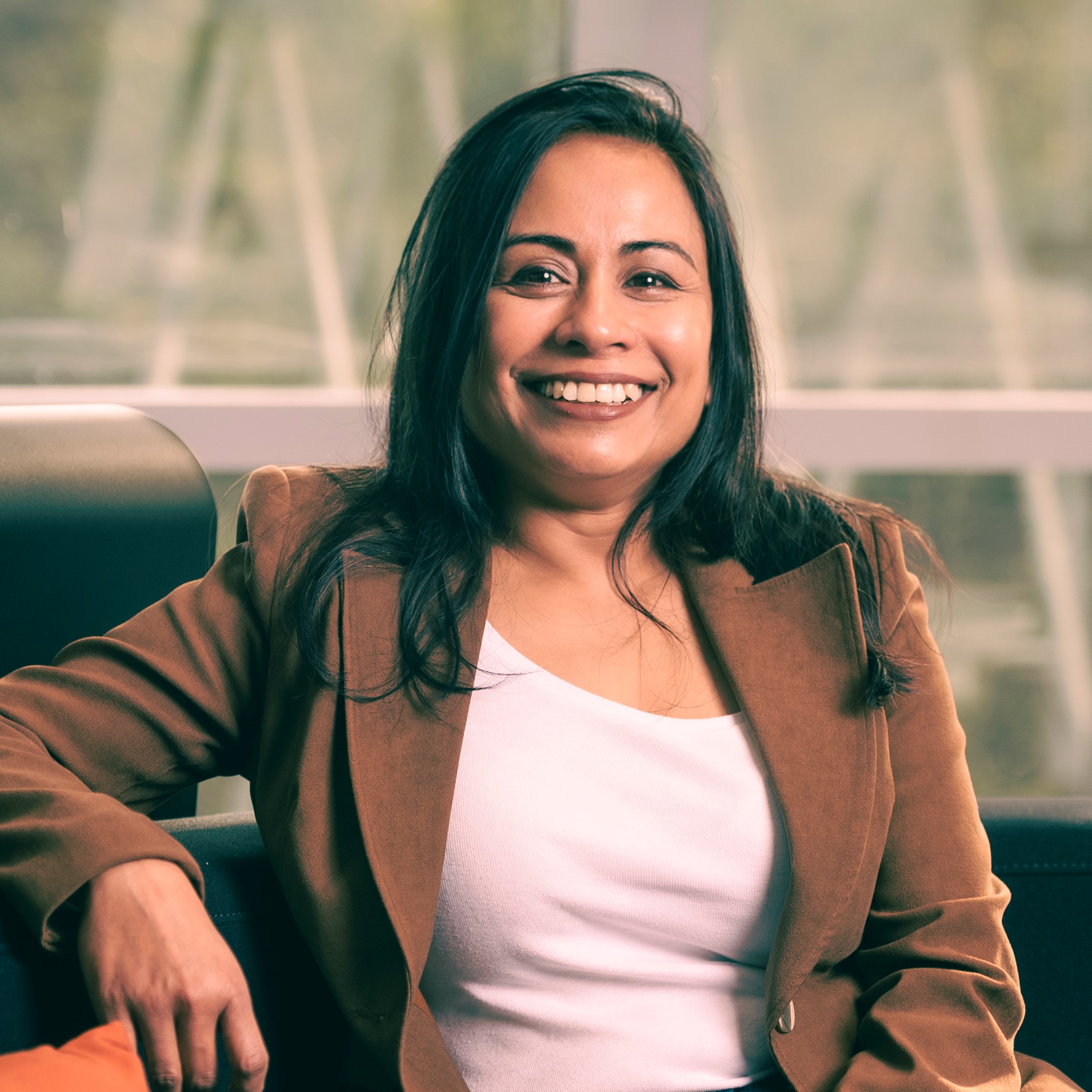
Work that supports the UK
I joined DE&S in 2019, running a team that were providing information management in our Knowledge and Information Management Hub. I wanted to work in the public sector, having worked as a contractor for the Ministry of Justice previously, and I was looking for that sense of giving something back to the country. I wanted to move away from a role where everything was centred around profit and do a job with more meaning and fulfilment. I now run a team of around 30 software developers to support UK Defence.
We’ve got three different technology stacks that we work with, so there are things we build using Office 365 tools, things that we build using Oracle Apex, and then there is a third technology called .NET. We have developers working on projects in all these areas at any one time. There are lots of projects going on within my team at any one time, the scale is huge; in 2021 we built more than 1,500 applications and projects!
Empowering our teams
I feel really empowered to go ahead and do things, knowing my seniors will support me, and that’s the model I use with my own team too. It’s great to empower people to go and make their own decisions, with set boundaries to try out new ideas, and that’s how they grow and learn to work independently.
“I wanted to move away from a role where everything was centred around profit and do a job with more meaning and fulfilment. I now run a team of around 30 software developers to support UK Defence.”
– Smita, DE&S Head of Application Services
Delivering for defence – together
One of the aspects I like most about working here is the people – my team is brilliant and everybody I’ve met within DE&S has been an absolute joy to work with. I feel a genuine sense of belonging and of support, which makes me feel secure in my job.
Memorable projects with real impact
When we were hit with COVID, and everyone started working remotely, suddenly we needed a way to track where our staff were, who had COVID, who didn’t, etc. We developed a personal data tracking tool to track all this information. Normally when we build an application, it takes time because you need to capture requirements, verify those requirements, and then you start building and testing. Because of the circumstances, we had to expedite this process, and the team built an application from scratch in six weeks, which was absolutely unreal.
Within my team we use the agile framework for development. You start working as soon as you’ve got the requirement in a simplistic form. You don’t need to know exactly what the end result will look like. So, for me, I wanted a tool that would allow me to track my staff. You start developing, and then you start making the product better and better. It may not be the most user friendly to begin with, because you’re just trying to get the functionality right, but then the further iterations of it make it more user friendly, make it more intuitive, until you have your final product.
It was fantastic to watch, with coders and architects working together to design the solution, figure out which of our tech stacks we needed to build it, and ensure availability of the resources to do it.
It was really lovely to see how, in a crisis, people can get together and make a miracle happen. Though the application itself wasn’t very complicated compared to some of our other products, it was the sheer teamwork that went into making that happen that will always stay in my mind as a truly memorable project.
“I’m part of the Social Mobility Network because I really want more people to take that step and succeed. There are barriers to get through – sometimes we need to be strong and do it ourselves, and sometimes we need to know when to ask others for help. There is an appetite for making more positive change happen, and that’s what the network is here to support with.”
Driving change through social mobility
Outside of my day job, I’m also a Co-chair for the DE&S Social Mobility Network. At the start, I wasn’t even sure what social mobility meant, but I chatted to the Social Mobility Network and decided it was something I wanted to get involved with. It’s all about enabling individuals to improve their socio-economic situation.
Through this work, I realised that I am a kind of standing example of social mobility, because I moved here from India about 23 years ago, with my husband, who is Indian and born in the UK. We both came to this country with just a suitcase to be honest – that was all the worldly belongings we had. But I’ve lived in this country for many years now and have grown my career here. My kids have been through school here. My eldest daughter is at the London School of Economics – and I’m so proud of her.
For me, it makes me think that if I can do this do this, come to a country which was alien to me in culture and make it work, anyone can.
That’s why I’m part of the network, because I really want more people to take that step and succeed. There are barriers to get through – sometimes we need to be strong and do it ourselves, and sometimes we need to know when to ask others for help.
There is an appetite for making more positive change happen, and that’s what the network is here to support with. There’s a lot of positive change happening in this space already but we can always do more. As an example, we’re working with the wider organisation to remove requirements for qualifications on our job adverts. There are people who can take amazing photographs – but you don’t need a degree in photography to do that, right? We want to make DE&S as accessible as possible to talented people from all kinds of backgrounds.


